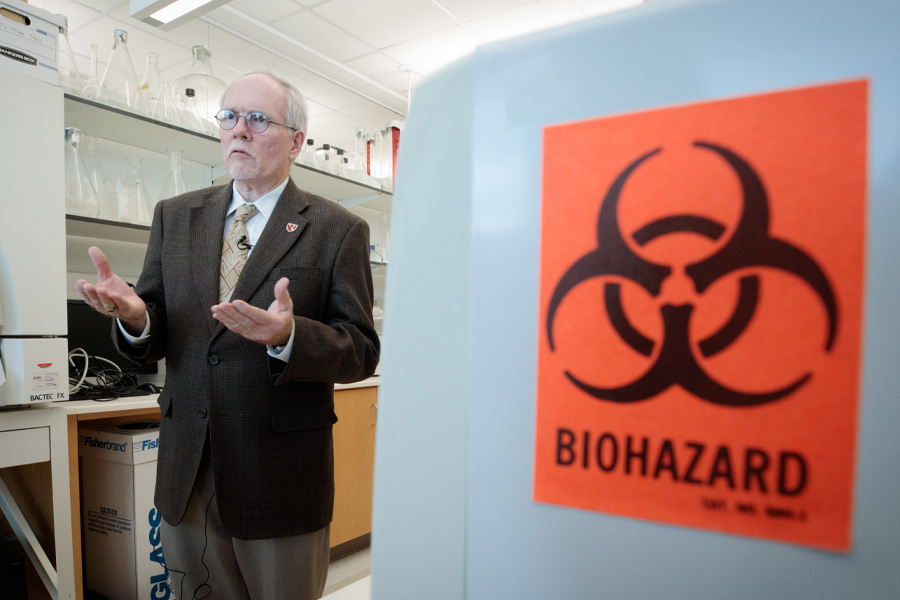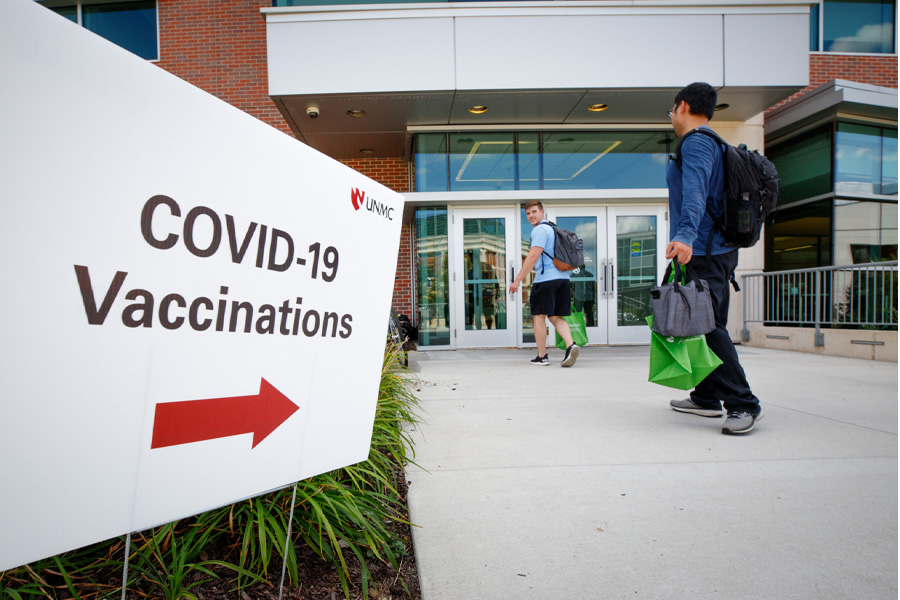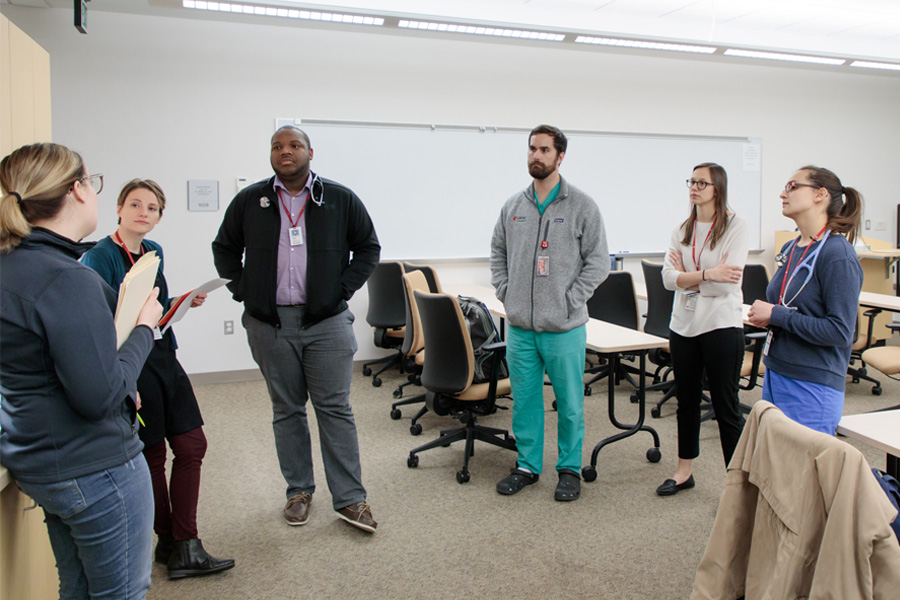PhD in Epidemiology
Design, conduct, and analyze epidemiologic research studies and apply findings to solve public health problems or discover causes of diseases.
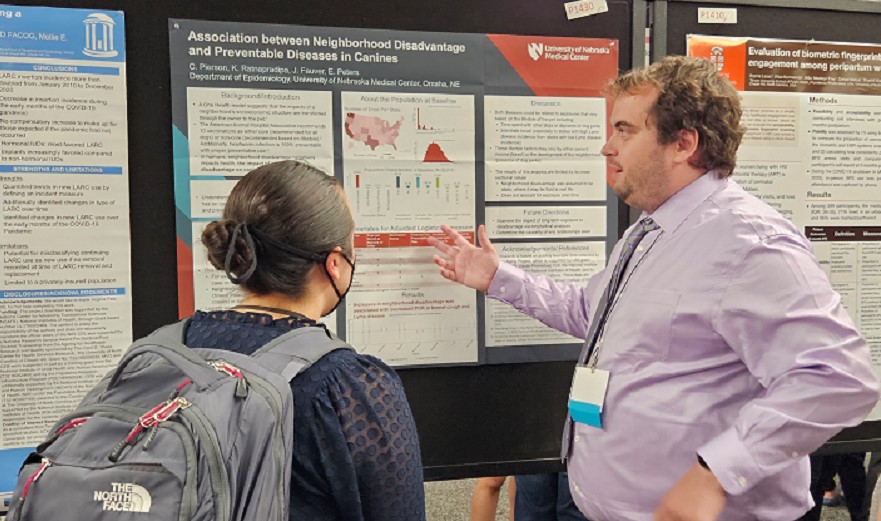
Why Study Epidemiology?
Epidemiology is the study of the distribution and determinants of disease or injury in a population. It is a cornerstone of public health and shapes policy decisions and evidence-based practice by identifying risk factors for disease and targets for preventive healthcare to improve population health.
Epidemiology is often described as the basic science of public health. It is a data-driven field that requires students to learn how to collect, analyze, and interpret data. Students interested in tackling complex health problems, from outbreaks of infectious diseases to chronic diseases to environmental health issues, can hone their problem-solving skills to find solutions to real-world health challenges.
Why Study Epidemiology at UNMC?
UNMC's Department of Epidemiology has a faculty of nationally and internationally recognized experts in various areas, including infectious diseases, cancer, genetics, psychiatry, social & environmental epidemiology, neuroscience, cardiovascular disease, global health, health security, and applied research and practice in preparedness and disaster solutions.
Our faculty provides interdisciplinary training in epidemiology methods and substantive content areas to conduct innovative research on public health and medical problems. The Department of Epidemiology is committed to diversity through our teaching, research, and service.
The Epidemiology Department offers many collaboration opportunities with clinicians and access to patient populations through Nebraska Medicine. With a largely rural population within Nebraska, the Epidemiology program provides excellent opportunities to study health disparities that impact rural populations. In addition, the Epidemiology Department offers numerous opportunities for collaboration with state and local health departments.
Admission is competitive, and applicants should have earned an MPH, MS, or equivalent with a strong background in epidemiology and biostatistics.
Program Snapshot
Course Load
Duration
Location
Start Date
Program Highlights
Epidemiology is highly interdisciplinary by nature, and in our program, we take advantage of the full breadth of the UNMC environment to adopt a transdisciplinary approach to epidemiology education, research, and practice. For example, the University of Nebraska Medical Center is home to the Fred & Pamela Buffett Cancer Center, the Great Plains IDeA-Clinical & Translational Research Center, and the Global Center for Health Security. The College of Public Health is home to the Center for Reducing Health Disparities and the Central States Center for Agricultural Safety and Health. The Epidemiology Department also partners with the Nebraska Department of Health, offering students access to public health data for research and internship opportunities.
The program offers courses in methodological and content areas, including advanced epidemiology methods, survey research, surveillance, infectious disease, cancer, and chronic diseases. Elective courses in other public health and health science disciplines are also available from other departments or colleges within UNMC.
The Epidemiology Department at UNMC is committed to student mentoring. It offers students many opportunities to become involved in research projects beyond their dissertations, participate in manuscript and grant writing, and expand their knowledge of epidemiology beyond the curriculum by attending national, regional, and local epidemiology conferences. Department-level journal clubs and seminars allow students to interact with fellow students and faculty.
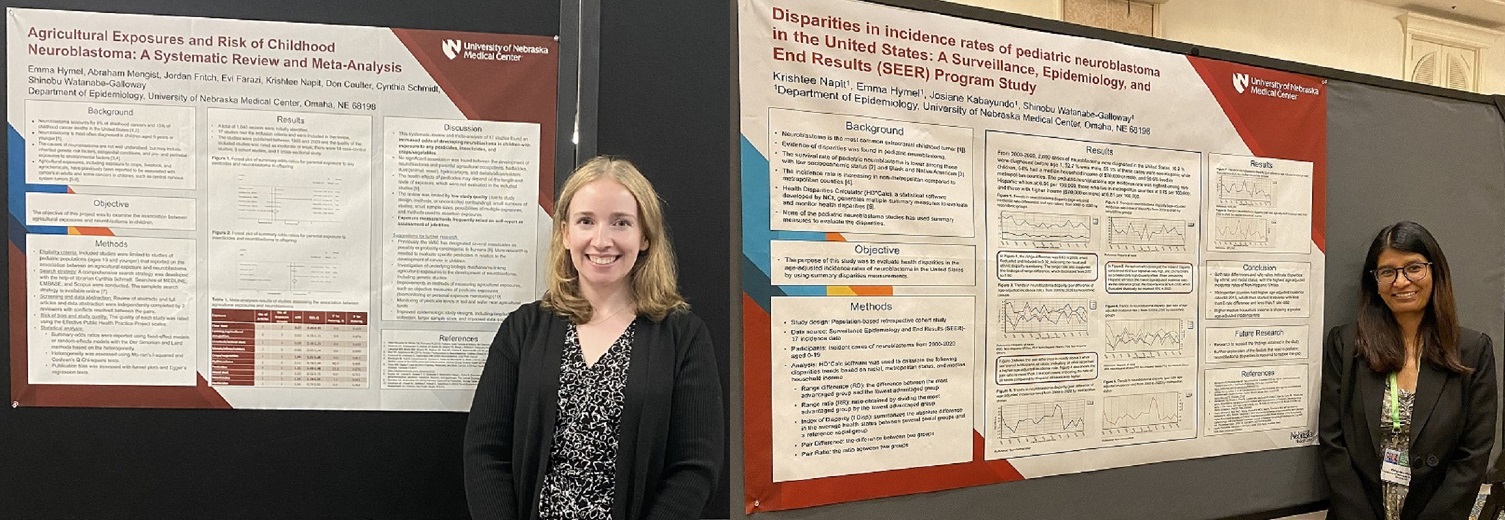
Careers & Outcomes
Epidemiologists are in high demand, and the Ph.D. in Epidemiology at UNMC prepares graduates for positions in government agencies, the private sector, and academia. For example, alumni from our program have pursued postdoctoral fellowships and obtained jobs in academic institutions, the Centers for Disease Control and Prevention (CDC), the US Food and Drug Administration (FDA), state and local health departments, and industry nationally and internationally. The program constantly strives to maintain and create new relationships with relevant stakeholders that could employ our students in the United States and internationally. Our graduates have, on average, 2.4 journal publications and five presentations at state and national conferences upon program completion (based on data from 2015-2020). The U.S. News and World Report Best Jobs report named Epidemiology the best science job for 2023.
Related Programs
Students interested in this program may wish to explore:
